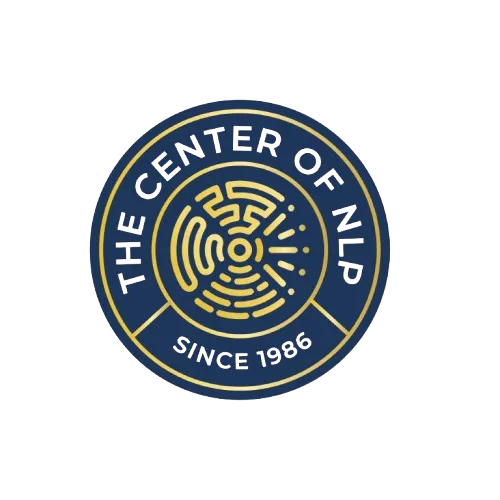
Why Are NLP Coaching Techniques Effective for Personal Development?
Personal development is one of the most important investments anyone can make, yet it’s also one of the most misunderstood. Many people consume books, attend motivational seminars, or watch endless videos, but still find themselves stuck in the same cycles of stress, procrastination, or self-doubt. What’s missing is a method that connects intention with practical action.
That’s where NLP coaching techniques come in. Unlike abstract theories, NLP (Neuro-Linguistic Programming) is a hands-on system designed to reprogram patterns of thought and communication. It helps people identify what’s holding them back, replace limiting beliefs with empowering ones, and build strategies for long-term growth.
Level up your life with practical NLP coaching techniques—get started now.
What Is NLP Coaching?
At its core, NLP coaching is a form of personal and professional development that focuses on how language, thoughts, and behaviour interact. It was developed in the 1970s and has since been refined into a toolkit for self-improvement.
Where traditional coaching often focuses on external goals, NLP goes deeper. It works with the subconscious mind, reshaping how individuals perceive challenges and opportunities. This deeper alignment helps people take more effective action and achieve results faster.
Key areas NLP coaching addresses include:
Building confidence in both personal and professional settings
Breaking unhelpful habits and thought patterns
Improving motivation and focus
Building up interpersonal relationships
The Psychology Behind NLP Coaching
One of the reasons NLP coaching resonates with people is its psychological foundation. It taps into how the brain processes language and experiences. Instead of focusing only on behavior, NLP works with underlying mental patterns, beliefs, memories, and emotional triggers that drive behavior. By shifting these, people don’t just change temporarily; they create long-lasting transformations.
The Role of NLP Communication Skills
Communication is at the heart of every relationship, whether in business, family, or friendships. The ability to express yourself clearly and understand others deeply can be life-changing.
Through NLP communication skills, individuals learn how to:
Listen actively: Not just to words, but to tone, body language, and underlying emotions.
Ask powerful questions that reveal true motivations and hidden obstacles.
Build rapport quickly: Creating trust in conversations with clients, colleagues, or loved ones.
Use language with precision: To motivate, influence, and encourage positive outcomes.
For example, an employee who feels overlooked at work can use these skills to communicate assertively without sounding confrontational. Similarly, parents can better connect with their children by understanding how their language shapes behaviour.
The result? Stronger, healthier connections and more effective communication in all areas of life.
Why Strategy Matters in NLP Coaching
Change doesn’t happen by chance; it requires a plan. That’s where NLP strategy plays an essential role. While motivation might provide a temporary spark, strategy ensures consistent progress.
Some proven NLP strategies include:
Reframing: Shifting perspectives on challenges so they appear as opportunities.
Anchoring: Linking positive emotional states (like confidence) to physical or mental cues.
Visualization: Creating vivid mental images of success to train the mind to believe in possibilities.
Goal-setting models: Structuring goals in clear, measurable steps to track progress effectively.
These strategies help people go beyond inspiration and create real, lasting changes in their behaviour and results.
How NLP Coaching Techniques Create Transformation
What makes NLP coaching techniques so effective is their practicality. They are not vague motivational ideas, but step-by-step tools that anyone can apply.
Here are a few examples:
A professional preparing for a high-stakes meeting can use visualization and anchoring to enter the room calm and confident.
Someone struggling with fear of failure can reframe setbacks as feedback, reducing anxiety and boosting resilience.
A student facing distractions can use NLP goal-setting structures to regain focus and motivation.
Because these techniques are action-oriented, results can be felt almost immediately. People often report feeling more empowered and in control after just a few sessions of NLP coaching.
Overcoming Common Personal Growth Challenges with NLP
Most people struggle with similar issues, lack of confidence, procrastination, negative self-talk, or fear of failure. NLP offers practical tools to address these challenges directly. For instance, reframing helps shift limiting beliefs into empowering ones, while anchoring creates quick access to states of calmness and focus. These tools make progress not just possible, but enjoyable.
Ready to change your mindset? Begin with NLP coaching techniques today.
Everyday Applications of NLP Coaching
The beauty of NLP lies in its adaptability. Unlike methods that only work in specific situations, NLP principles can be used daily.
In professional life:
Leaders use NLP to inspire teams and improve workplace culture.
Sales professionals use it to build rapport and close deals more effectively.
Entrepreneurs use it to overcome self-doubt and take bold action.
In personal life:
Parents improve family communication and reduce conflicts.
Couples resolve misunderstandings by recognising hidden communication patterns.
Individuals overcome fears, manage stress, and improve self-esteem.
No matter the context, NLP fits seamlessly into everyday routines.
Why NLP Stands Out Among Other Development Methods
While there are many approaches to personal growth, NLP stands out for several reasons:
Speed of Results: Many people notice a shift within their first coaching session.
Scientific and Practical: It blends psychological insights with actionable steps.
Adaptability: Useful for professionals, students, parents, or anyone looking to grow.
Focus on Empowerment: Instead of relying on external motivation, NLP empowers individuals to take control of their own transformation.
Unlike motivational talks that fade quickly, NLP provides tools that people carry for a lifetime.
Success Stories with NLP Coaching
Thousands of people worldwide credit NLP for breakthroughs in their careers and personal lives. For example:
A business leader improved employee retention by using better communication strategies.
A teacher reduced classroom stress and connected with students on a deeper level.
An athlete overcame performance anxiety through visualization and anchoring techniques.
These stories highlight that NLP is not just about theory; it’s about real-world impact.
The Future of NLP in Personal Development
As coaching evolves, NLP continues to adapt to modern challenges. From virtual coaching platforms to integration with emotional intelligence training, NLP is becoming more accessible and impactful. Many organisations are even adopting it as part of leadership and employee development programs. Its future points toward a world where personal growth tools are not just for individuals but embedded in workplaces and communities.
Conclusion
Personal development is only effective when it is both practical and sustainable. That’s the strength of NLP coaching techniques. By combining powerful NLP communication skills, structured NLP strategies, and practical coaching methods, NLP enables individuals to overcome limitations and achieve meaningful growth.
If you’ve ever felt stuck in your personal or professional journey, NLP may be the missing piece, a proven way to align your mindset, language, and behaviour with the results you truly want.
Change your mindset now: Begin with NLP coaching techniques today.
FAQs
1. What does NLP coaching involve?
NLP coaching involves using language and mindset techniques to reprogram negative patterns and achieve personal or professional goals.
2. How do NLP communication skills help in daily life?
They improve how you listen, speak, and build rapport, creating stronger connections at work and home.
3. Is NLP coaching only for professionals?
No, it’s suitable for anyone—students, parents, entrepreneurs, and individuals seeking self-growth.
4. How is the NLP strategy different from general goal-setting?
NLP strategies focus on subconscious alignment, making goals easier to achieve and sustain.
5. How quickly can I see results with NLP coaching?
Many people notice improvements within their first few sessions, while consistent practice ensures long-term benefits.
To learn more about NLP training and coaching programs, contact Center of NLP today.
Check Out For more:

